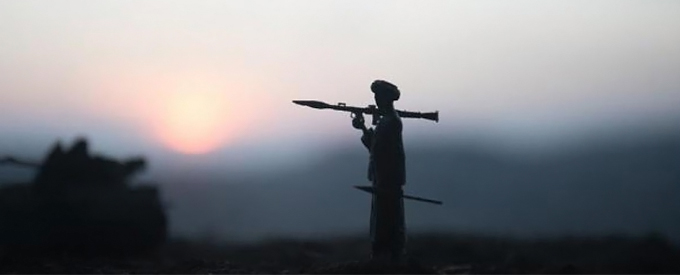2021-09-01
Taliban,Tactical or Strategic Changes?
All of a sudden, Afghan cities and provinces have fallen, one after another, in the hands of the Taliban Movement. The U.S. intelligence had expected that the Kabul government would hold out for at least six months before the movement had tightened its grip on the capital. Such collapse has led to a strategic vacuum and raised great concern, especially in the neighbouring countries of Afghanistan.
By: Staff Colonel/ Yousef Juma Al Haddad
In 2021, however, will the Taliban be a modified version of the previous one? Are we going to witness real changes in its policies internally and externally? In fact, the statements made by some Taliban leaders, including its spokesman, Zabihullah Mujahid, at the Movement’s first press conference, included assurances and pledges to those inside and outside Afghanistan.
The Movement has pledged to give women their rights to work and education, and to only obligate them to wear the veil within the framework of Islamic Sharia laws, which is a flexible and general concept. The Movement has also issued a general amnesty for government employees, army forces and those who collaborated with the U.S. and NATO forces.
It demanded the Afghan youth to remain in Afghanistan in order to develop their country. In addition, the Taliban promised that Afghanistan would not be a point of threat to foreign or neighbouring countries, which means that it will not be a haven for terrorist organisations like ISIS and Al Qaeda. On the practical level, however, foreign and Western countries have been cautious about the pledges and statements of the Taliban leaders, as they think that this is contingent upon a real change in the Taliban’s behaviour on the ground that is, translating words into deeds.
Through this discourse, statements, and theoretical reassurances, the Taliban aims to break its international isolation, gain international recognition, and attract foreign investments in light of the difficult economic conditions experienced by the Afghan people. In return, it announced the establishment of the Islamic Emirate regime and the change of the political system in the country.
Therefore, the change in the Taliban policies may be only in tactics, not in strategies or goals. Although the Movement made promises that Afghanistan would not be a springboard for terrorist acts against others, in practice, Afghanistan of the Taliban may be an arena for attracting extremist religious terrorist organisations from many countries of the world. This may take place in light of the chaotic conditions in the country, especially with the rise of opposition movements to Taliban, as happened in Jalalabad and elsewhere as a result of the population’s objection to the Taliban’s policies and the change of Afghan political scene is based on pluralism. There are also doubts regarding the formation of a national government representing all spectrums of the Afghan people, which will be a government formed mainly of Taliban personalities, including some elements from the old regime and tribes, to beautify the image in front of the world.
There remains, however, the Taliban’s relationship with terrorist organisations, which is possibly the main determinant of its relations with the world in the coming stage, because no one can fully grant the truth of the severance of relations between the movement and these organisations. Despite the pledges that Afghanistan will not be a source of threat to others, there are doubts about the continuation of secret relations between the Taliban and the leaders of terrorism by virtue of intellectual affinity and long-term collaboration.
The form of governance to be established by the Taliban, its practices on the ground and its dealings with its opponents will be important determinants to show whether there has been a change in its approach.
On the other hand, the U.S. withdrawal from Afghanistan has launched a race between several regional balances to fill the void. Pakistan, Iran, and Turkey, not to mention Russia and China, each began preparing for the post-U.S. era. Pakistan, the neighbouring country, will increase its influence by virtue of the historical relationship with the Taliban.
Iran will attempt to achieve a foothold in Afghanistan through the Hazara minority, while Turkey will seek a role by communicating with the Taliban and providing the security support that the Movement needs. Signs of understanding are also looming on the horizon between Beijing and the Taliban on the one hand, and Russia and the Taliban on the other hand, represented in the Movement’s assertion that it will not interfere in the issue of the “Uyghurs”, Muslims in China, as it is an internal matter. The Taliban has also confirmed that it will work to improve its relations with Russia.
Thus, the 10 years of the Soviet existence, just as the 20 years since the American invasion, have already passed, as well as the British occupation before that in the 19th century, without changing anything about the nature of the Afghans, as if the Afghan people are saying, ‘Let whatever and whoever come, we remain...”


No Comments